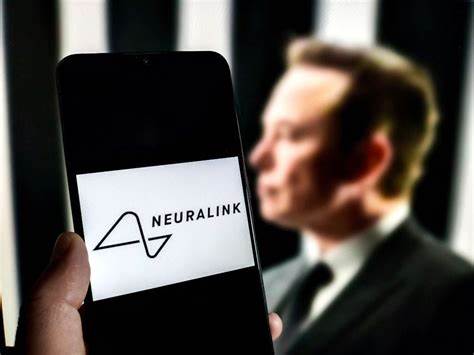The start-up, co-founded by Musk in 2016, aims to develop a direct communication channel between the brain and computers, in order to, at an initial stage, restore autonomy to people with medical needs.

«For the next phase of deployment, we really want to make sure that we make as much progress as possible among every Neuralink patient,» added the head of Tesla and SpaceX. Image. Internet
U.S. tycoon Elon Musk announced that his neurotechnology company Neuralink will resume the installation of brain implants in human beings, after a problem was overcome two months ago that reduced the ability of the first patient operated on to move the cursor of a computer with his thoughts.
The start-up, co-founded by Musk in 2016, aims to develop a direct communication channel between the brain and computers, in order to, at an initial stage, restore autonomy to people with medical needs, especially with quadriplegia.
Its technology, which promises in the future to «unleash human potential», works through a device the size of five stacked coins that is inserted into the brain through invasive surgery and allows devices to be controlled with the mind.
«It is now that we move on to our second patient. But we hope, if all goes well, to have several, more than five, already this year,» the billionaire said Wednesday in a conference broadcast on X, his social network.
«For the next phase of deployment, we really want to make sure that we make as much progress as possible among every Neuralink patient,» added the head of Tesla and SpaceX.
In January, Neuralink placed its first brain implant in a human, Noland Arbaugh, 29, who has been quadriplegic since a diving accident.
The company released a video in March showing Noland playing chess online, using his mind, without mentioning a detail: After the operation, some of the electrode-coated wires had retracted.

At Duke University, both primates are currently separated physically, but will soon be connected, mentally. Signals from their brains will be merged as the result of years of research inside the lab of Dr. Miguel Nicolelis. Image. Internet
Because they are used to capture neural signals, the patient momentarily lost the ability to control the screen cursor.
Neuralink said in May that it had fixed the problem, notably by improving the algorithm to make it more sensitive to signals.
The company took stock of its progress, including implanting wires deeper into the brain to improve patients’ capabilities.
Musk hopes to one day be able to restore mobility to the paralytics, thanks to a second implant in the spinal cord. Musk again promised in his speech that this technology will give «superpowers» to humans.
According to the tycoon, Neuralink aims to increase the bandwidth of the link between the brain and the computer, because «for the symbiosis between humans and artificial intelligence (AI) it is very important to be able to communicate at a speed that AI can follow.»
In May 2023, the company received the green light from the U.S. Food and Drug Administration (FDA) for clinical trials of its implant.